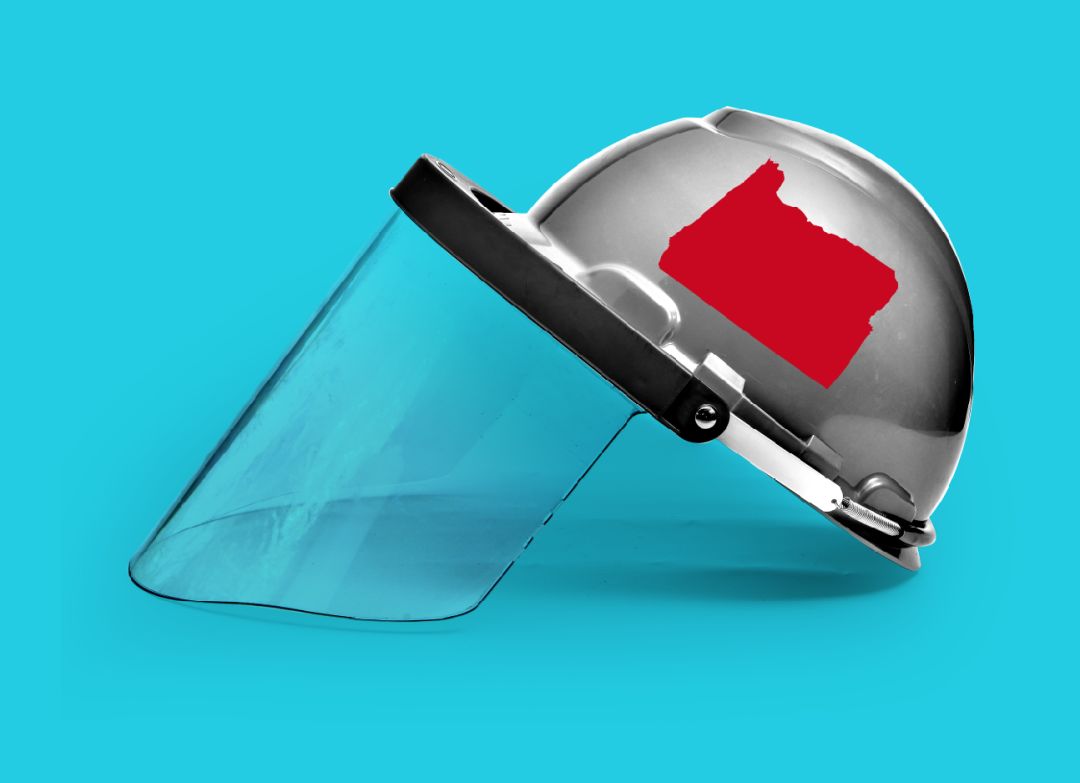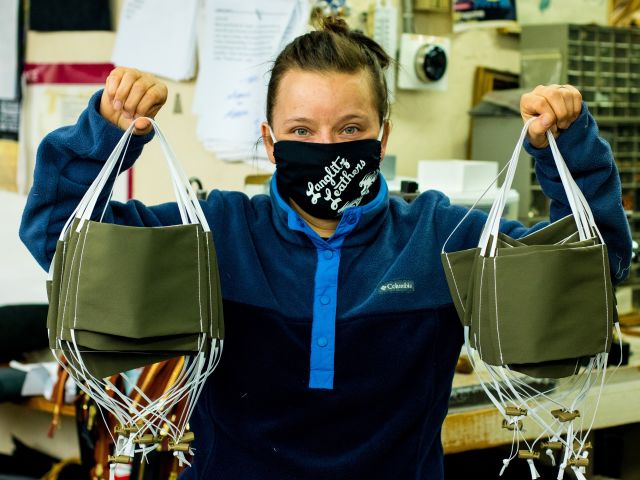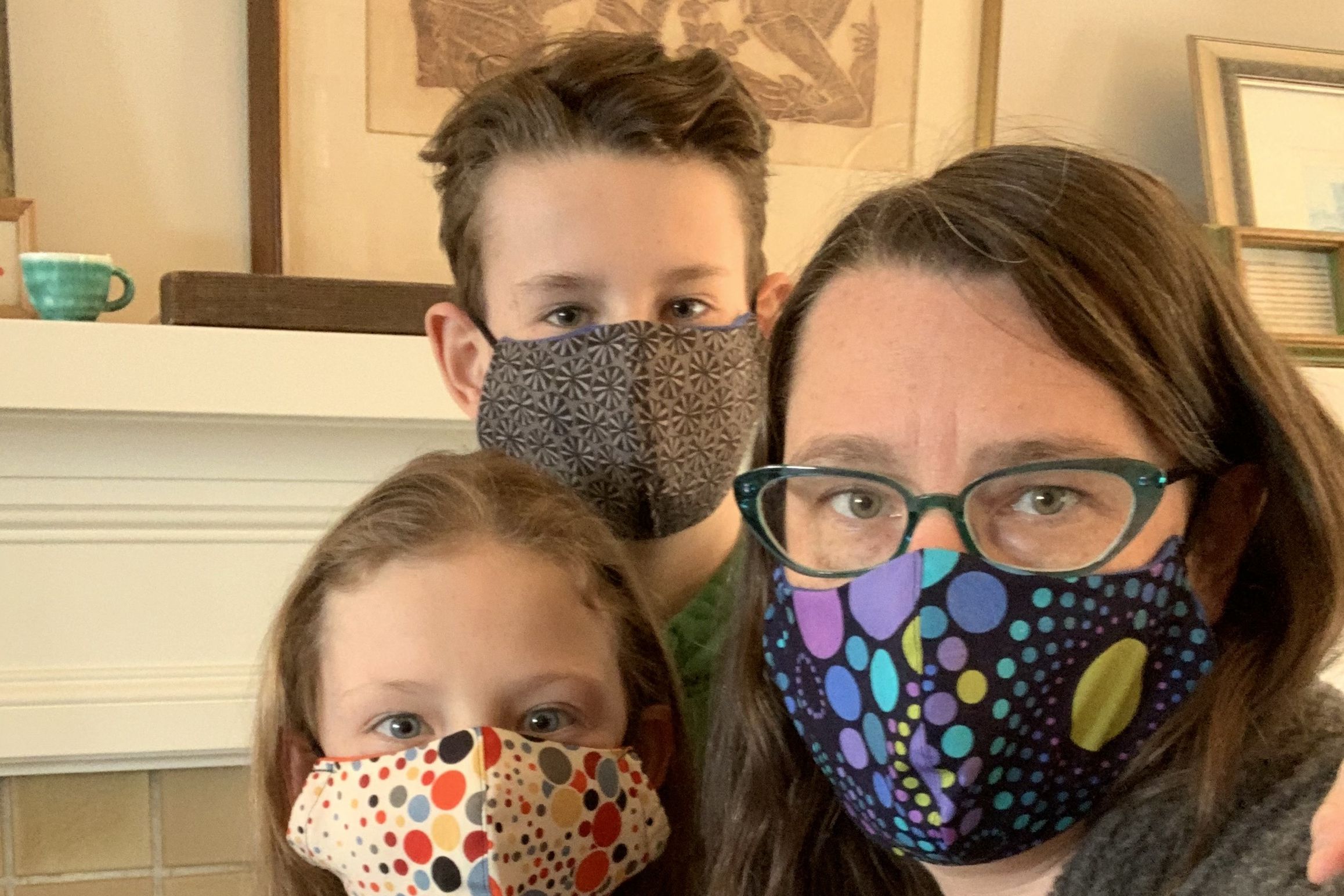Oregon Businesses Can Make the Gear Doctors Desperately Need. So What's the Holdup?

Small apparel and gear manufacturers around Oregon say they are ready to start churning out the desperately needed personal protective gear for doctors and nurses that’s in such short supply as the coronavirus epidemic spreads around the state.
But though there’s a will, there doesn’t seem—yet—to be much of a way.
Instead, their efforts have been stymied by federal regulations that restrict the point of origin for medical gear like masks, gloves, gowns, and goggles, and by a lack of funding to support scaling up these efforts.
In other words: It’s one thing for sewing enthusiasts to dig deep into their fabric stash and stitch up masks at home. It’s another thing for small businesses to front the materials costs for producing thousands of masks, and to pay their workforce to do so under safe, socially distant conditions, without even knowing if what they produce will be approved for use by local hospitals.
Government officials are well aware of the problem, but so far there are no concrete solutions. Last week, Oregon’s entire Congressional delegation called for the Trump administration to “expedite and clarify the evaluation and approval processes" for businesses that want to produce protective gear for health workers. They’re also asking “for clear guidance to states about acceptable materials and necessary specifications,” since figuring out exactly what hospitals need has proved challenging.
Gov. Kate Brown, too, has identified the problem, laying the blame squarely on the federal government.
"We have the ability to make more—we have experience, facilities, and equipment to scale up manufacturing of [personal protective equipment] right now," she said at a recent press conference. "What’s the barrier? It’s the federal government. They are not providing correct specs and companies don’t have liability for what they’re making. I’m not exaggerating when I say this outrageous lack of action will result in lost lives.”
Meanwhile, makers are mobilizing to push for change, says Dawn Moothart, of Portland Apparel Lab, who has organized a Slack group where business owners are trading tips, fielding each other’s questions and planning a lobbying effort.
“Nobody is saying this is a business opportunity,” Moothart says. “But they say, if I can make ends meet, we can pivot and do it as a short-term fix.”
So far, she says, in addition to funding questions, it’s been difficult to connect with decision-makers at hospitals, to figure out exactly what they’ll accept and what they need. And no one seems to know whether there could be repercussions for producing equipment for medical use in settings that have not previously been inspected by the federal Food and Drug Administration—or whether that could leave small businesses exposed to lawsuits down the line.
Amidst the confusion, a few smaller efforts are up and running. In Hood River, Bruce Petersen normally spends his days designing and producing custom windsurf sails as the owner of Sailworks, beloved by the outdoor enthusiasts who flock to the breezy Columbia River Gorge in the summer. But Petersen’s wife is a birthing nurse at a local hospital, and so he says he knew early that the lack of protective gear for frontline health care workers was going to be an enormous problem that he could help solve.
Funded by Handmade Brigade 50, a community nonprofit, Petersen’s shop has pivoted to spending three weeks producing 6,000 face shields, made from the thick materials he had on hand for the peek-a-boo window panes in windsurf sails. To help fill the orders, he has hired four new staffers, all of whom maintain strict social distancing while at work, he says. In nearby White Salmon, Wash., Immersion Research, which normally makes gear for whitewater rafters, is now turning out hospital gowns for the same group of Columbia River Gorge hospitals.
Larger companies are having more success. Nike recently announced it was partnering with OHSU to make face shield prototypes for use there, and Seattle-based Nordstrom's has deputized a fleet of tailors to make medical grade masks at the company's stores, including at the Washington Square store in Tigard, in partnership with Providence Health & Services.
Other smaller businesses are exploring whether they can produce masks for those who need protection but don’t work in hospital settings, like grocery store clerks or medical transport workers. Portland-based Looptworks, which makes sturdy, fashion-forward reusable bags, limited-edition apparel, and accessories from repurposed materials, is in discussions to launch mask making efforts for those markets, says marketing director Clare Healy. Their sewers already work from home, so social distancing is easily managed.
The company remains hopeful that regulations will be loosened, she says—after all, the Centers for Disease Control currently recommends that nurses wear bandanas as a last resort if no medical grade masks are available, suggesting that those in charge know something has to give.

Langlitz Leathers seamstress Sandra Stout holds up masks that the shop's employees have been donating to help with the shortage.
Others have simply launched into sewing masks and donating them as time and money allow. At Langlitz Leathers, a family-owned Portland institution that makes custom gear for motorcyclists, staff have been at work sewing masks to donate to those in need, says co-owner Bennie Goodson. "A nurse showed up, who worked for Kaiser-Permanente and said they were running out of masks," he said. "She emailed to ask for 75, showed up to pick them up on a motorcycle, wearing head to toe Langlitz Leathers. We wouldn't take one dime."




